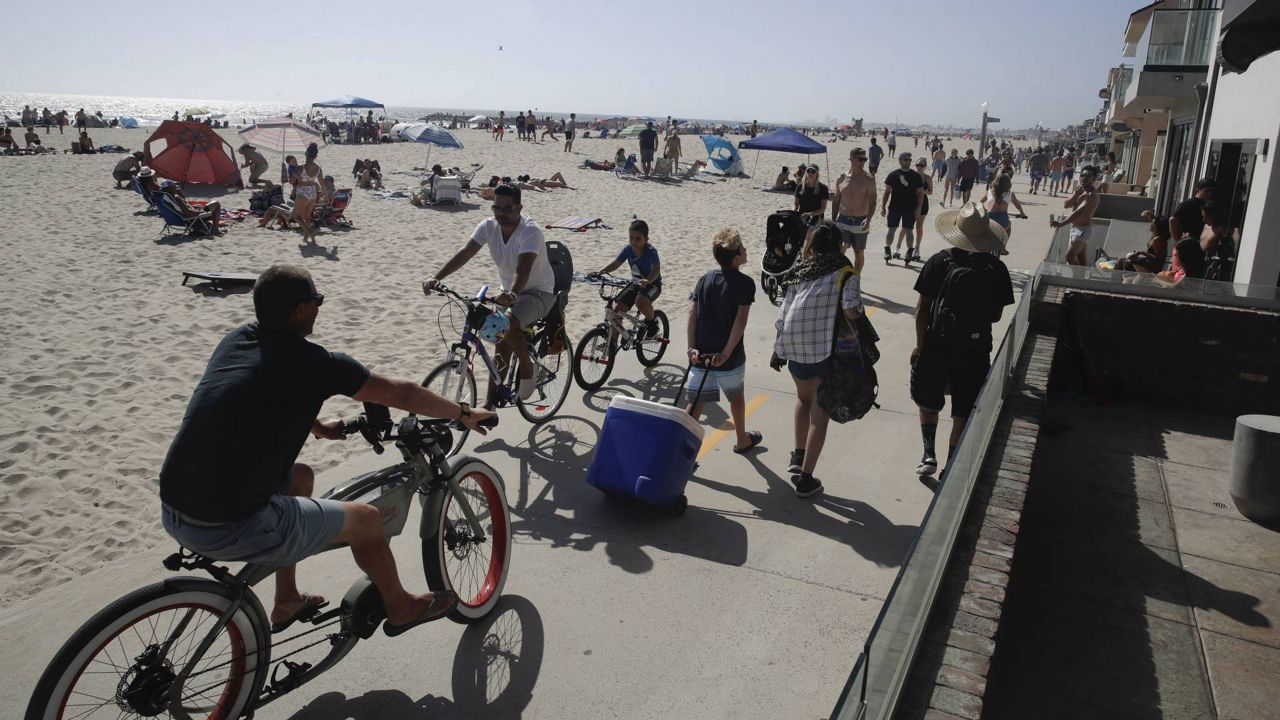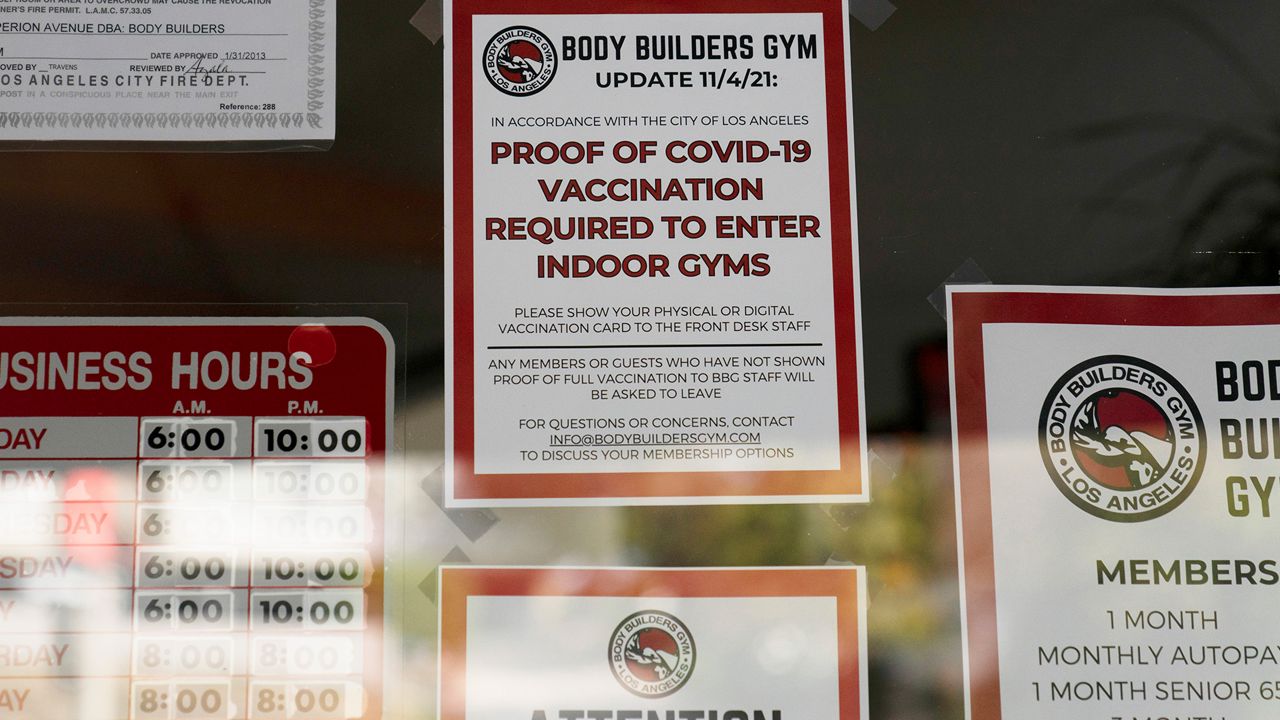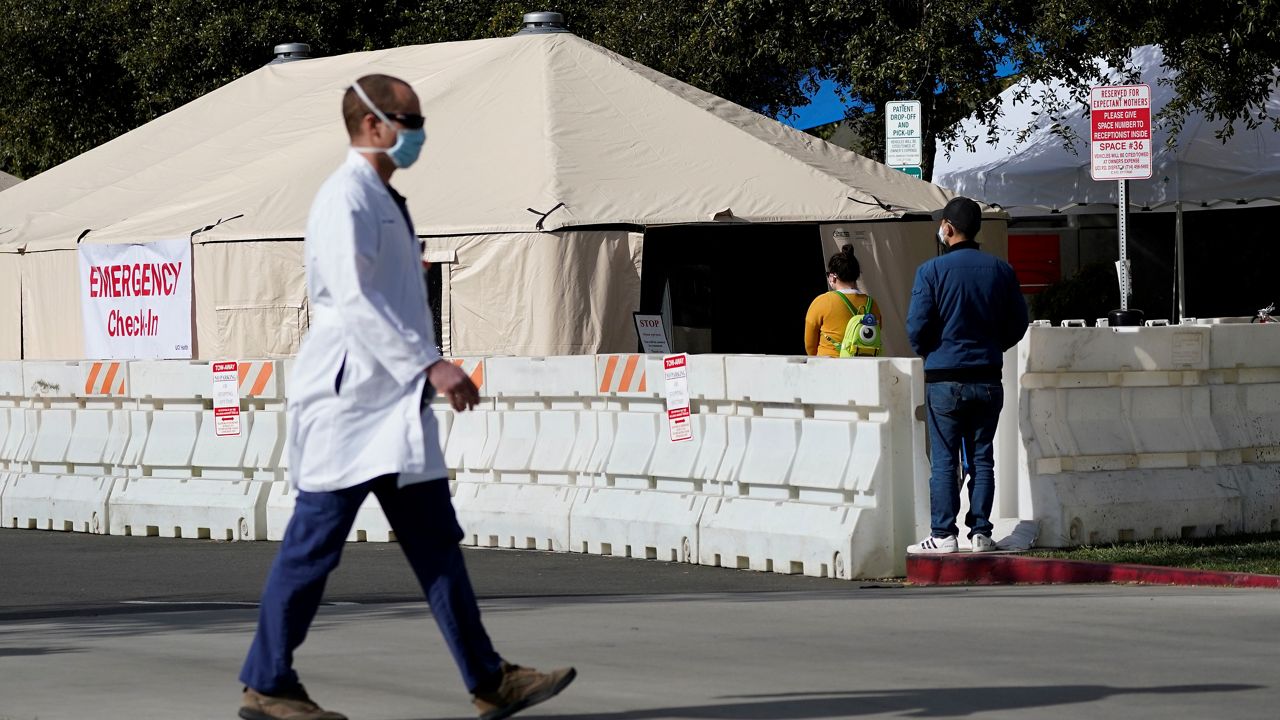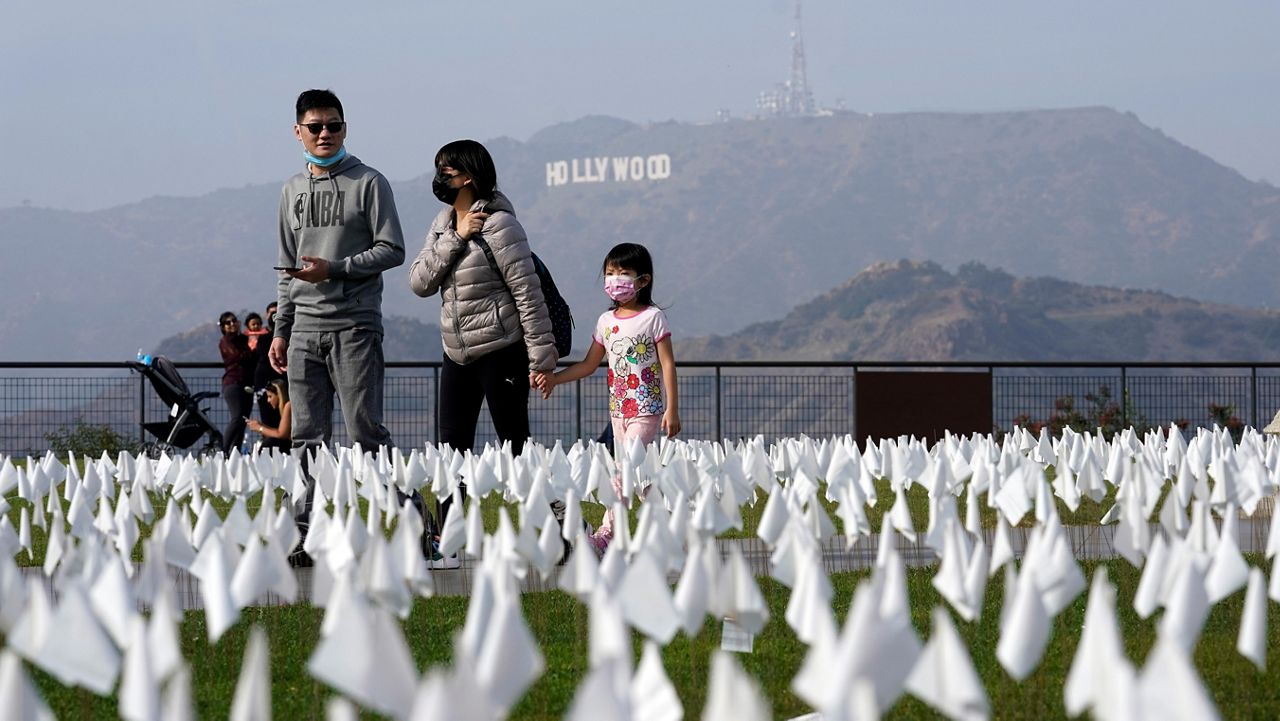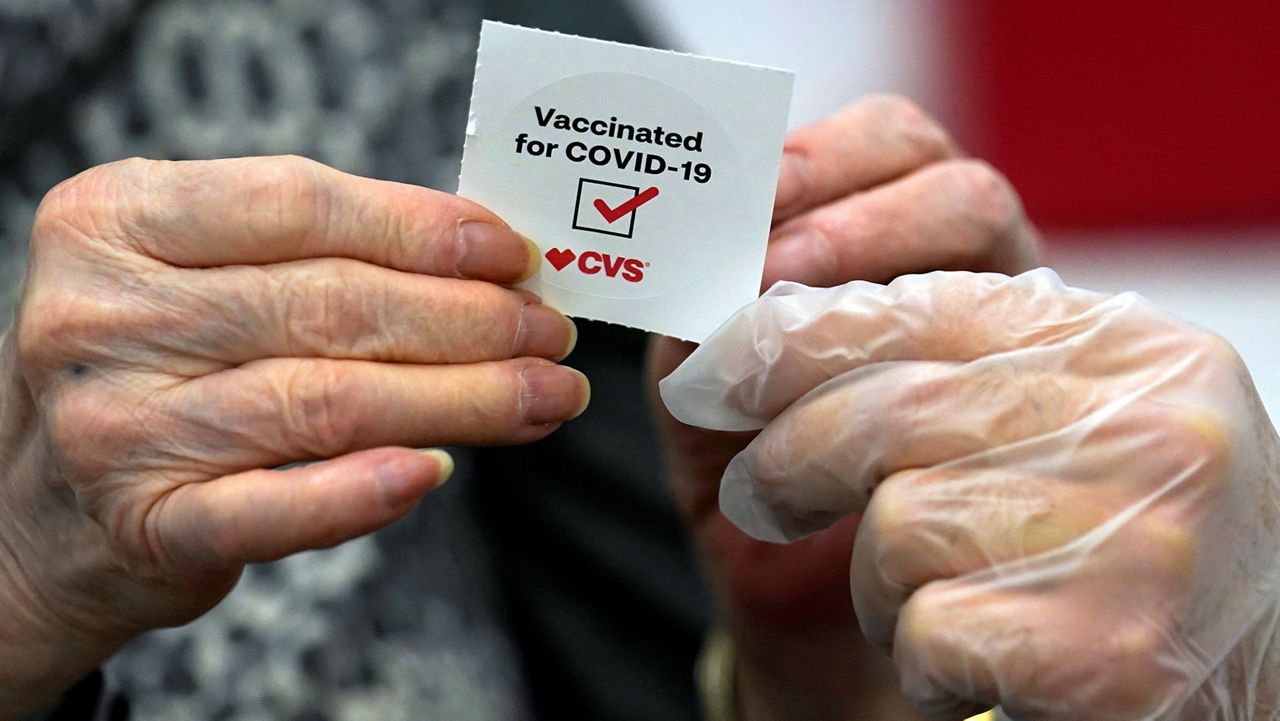SANTA ANA, Calif. (CNS) — On the day the state lifted most of its COVID-19 restrictions and scrapped its color-coded tier system for reopening California, Orange County's weekly case averages remained much like last week.
According to weekly state data released every Tuesday, the county's average daily new case rate per 100,000 residents remained at 0.8, the same as last week, while the overall test positivity rate ticked down from 0.7% to 0.6%. The county's Health Equity Quartile rate, which measures positivity in hot spots in disadvantaged communities, remained at 0.8%. That would have kept the county in the least-restrictive yellow tier, but that system has ended with the state's reopening on Tuesday.
What You Need To Know
- Orange County reported just 32 new infections and two more fatalities on Tuesday
- Hospitalizations ticked down from 55 to 54, while the number of intensive care unit patients increased from 11 to 15
- The county's average daily new case rate per 100,000 residents remained at 0.8, the same as last week
- Most of the state's COVID-19 restrictions were lifted at 12:01 Tuesday morning
The county also reported just 32 new infections, upping its cumulative case total to 255,695, and logged two more fatalities, raising the death toll to 5,099. Meanwhile, hospitalizations ticked down from 55 to 54, while the number of intensive care unit patients increased from 11 to 15.
Of the county's latest logged fatalities, one happened this month and another last month. There have now been two fatalities reported for this month; 20 in May; 40 in April; 197 in March; 608 in February; 1,559 in January, the deadliest month of the pandemic; and 965 in December, the next deadliest.
Another 8,160 COVID-19 tests were reported Tuesday, bringing the county's total to 4,027,680. The county's weekly average of tests per 100,000 residents dropped from 210.1 last week to 195.4.
California COVID-19, By The Numbers:
— CA Public Health (@CAPublicHealth) June 15, 2021
🔹 Confirmed cases to date: 3,697,927
🔹 Note: Numbers may not represent true day-over-day change as reporting of test results can be delayed
More information at https://t.co/TLLUGwPGY7. pic.twitter.com/uTSHdcyBn6
"Our numbers are low and holding," Orange County Supervisor Lisa Bartlett told City News Service. "I'm just really over the moon today to have June 15 roll around and to know we can fully reopen our economy and get back to a sense of normalcy. It's a significant milestone."
The reopening is a "significant day because of what it signals — that we have more than the upper hand of COVID coming out of the pandemic after a year and a half," Bartlett added.
Bartlett assured a group of business leaders in a meeting Tuesday morning that she and others will do what they can to help businesses get back on their feet. A number of restaurateurs were concerned they won't be able to continue with outdoor dining during the summer, but Bartlett assured them officials will do what they can to continue to help them offer al fresco dining because some customers may not be ready to dine indoors again.
"I anticipate that pulling out of the pandemic cities and counties will do everything they can to help businesses regain that lost income," Bartlett said.
While most of the state's COVID-19 restrictions were lifted at 12:01 Tuesday morning, Gov. Gavin Newsom nonetheless warned the virus is still active — and that mask-wearing will continue to be a reality for non-vaccinated residents, at businesses that opt to require them and for people who simply feel safer wearing them.
Dr. Jose Mayorga, executive director of the UCI Family Health Centers, said of the state's reopening, "If you want to call it a summer vacation from COVID-19, that's appropriate."
He added, "People are tired mentally and physically at this point. They want to move on in some capacity and want to feel like there's some normalcy to their summer compared to last summer."
Mayorga, however, said Californians should respect one another's choices whether to continue wearing face coverings.
"It may be difficult for some of us to move on and feel comfortable removing their masks," he said. "Don't give them a hard time. Everyone will do it in their own time."
Mayorga said he has young children not eligible to receive the vaccine, so he prefers to keep a mask on indoors in public places.
Mayorga said he "will likely not get ill" because he is fully vaccinated. "We know that from the vaccine, but I can also transmit it to my child and I don't know how they'll respond," he said.
Also, some people may have a compromised immune system or live with someone who does, Mayorga said. Some immuno-compromised individuals who have been fully vaccinated are protected at a fraction of healthier people.
Mayorga said as masks are used less, there is likely to be a resurgence in other viruses that are more common, so psychologically some people may get nervous if they get a cold or the flu, thinking it is COVID-19. The doctor said anyone feeling any cold or flu symptoms should get tested just in case.
Mayorga said COVID-19 is a seasonal virus and may see a resurgence in the fall or winter.
He predicted it will be difficult to get people to mask up and do other social distancing if there is a resurgence.
"It's great we want to give people a break, but we should really understand that this is a seasonal virus," Mayorga said. "It is aligning with its fellow family members. The only reason it affected us so tremendously is it was new. It was novel. Now is the time to get protection because it takes almost two months to get full protection if you choose the MRNA vaccines, which are proving to be the most efficacious."
The one-step Johnson & Johnson vaccine is also proving to be highly effective against the variants like the Delta strain, which is more contagious, Mayorga said. It takes about two weeks for Johnson & Johnson recipients to be fully vaccinated, he said.
"The best way to get that protection is full vaccination," Mayorga said.
The county has "made some great strides" vaccinating minority groups hardest hit by the pandemic, he said. But, he added, "Latino men are still among the most resistant groups to get vaccinated."
Mayorga has noticed as he works with community groups vaccinating in Latino neighborhoods that "the matriarch of the family, that mom, has not only signed up their kids, but are also signing up their husbands, saying, `nope, you're getting this vaccine to protect you and the kids. I'm not going at this alone.' They have really pushed them."
He said about 27% of the 39.4% eligible Latinos to receive a vaccine are getting inoculated in the state. Among whites, 36% of the 38.2% eligible vaccine recipients have been inoculated.
Andrew Noymer, a UC Irvine professor of population health and disease prevention, encouraged residents to enjoy the summer, when case rates are expected to remain low, and praised the state's move to lift pandemic-related restrictions.
"I hate this phrase `reopening the economy' because the economy has been doing fine. Just look at California's tax receipts," Noymer told City News Service on Monday. "It's about reopening social events. I think it's totally appropriate right now based on epidemiology."
Public health officials are wise to support a summer vacation from many COVID-19 restrictions, Noymer said.
"We cannot keep things under a regime as if it's early January 2021 now given the situation," he said. "(Public health officials) would burn every ounce of credibility they have. I am well-known as a stern, cautious person, but when the situations change, life changes and I think you should go back to your favorite restaurant this summer. If your chicken taco recipe is still not as good as the taco place you like to go to, then go back to the taco place."
But like Mayorga, Noymer cautioned residents to be ready for another potential wave in the fall as more people spend more time indoors and children go back to school.
Referring to a scheduled mask burning at the Huntington Beach pier Tuesday evening to protest the state's handling of COVID-19 restrictions, Noymer said, "If it would make them happy to spend 90 minutes down at the Huntington Beach pier burning masks, that's between them and the South Coast Air Quality Management District. But I am sincere when I say put it in a drawer and not in a bonfire because we don't know what the future holds. That's not a firm prediction that doomsday is coming, but the future is uncertain. If you haven't learned that by now, I don't know what to say."
The key to defeating the coronavirus is vaccinations, he said.
"I do worry about kids spreading it, but mostly older kids," Noymer said. "Ninety-five percent of spreading by minors is (by) 12 to 17 (year olds) .... People need to get the vaccine and take responsibility for their actions."
If everyone 12 and older got inoculated, the country would achieve herd immunity and it would not be necessary to vaccinate younger children, Noymer said.
The current vaccines show 88% efficacy against infection for the new and more contagious Delta strain, Noymer said.
The professor said he knows of someone who refused to get vaccinated on "political grounds," and "he got COVID and is on a ventilator and let's all hope he recovers."






